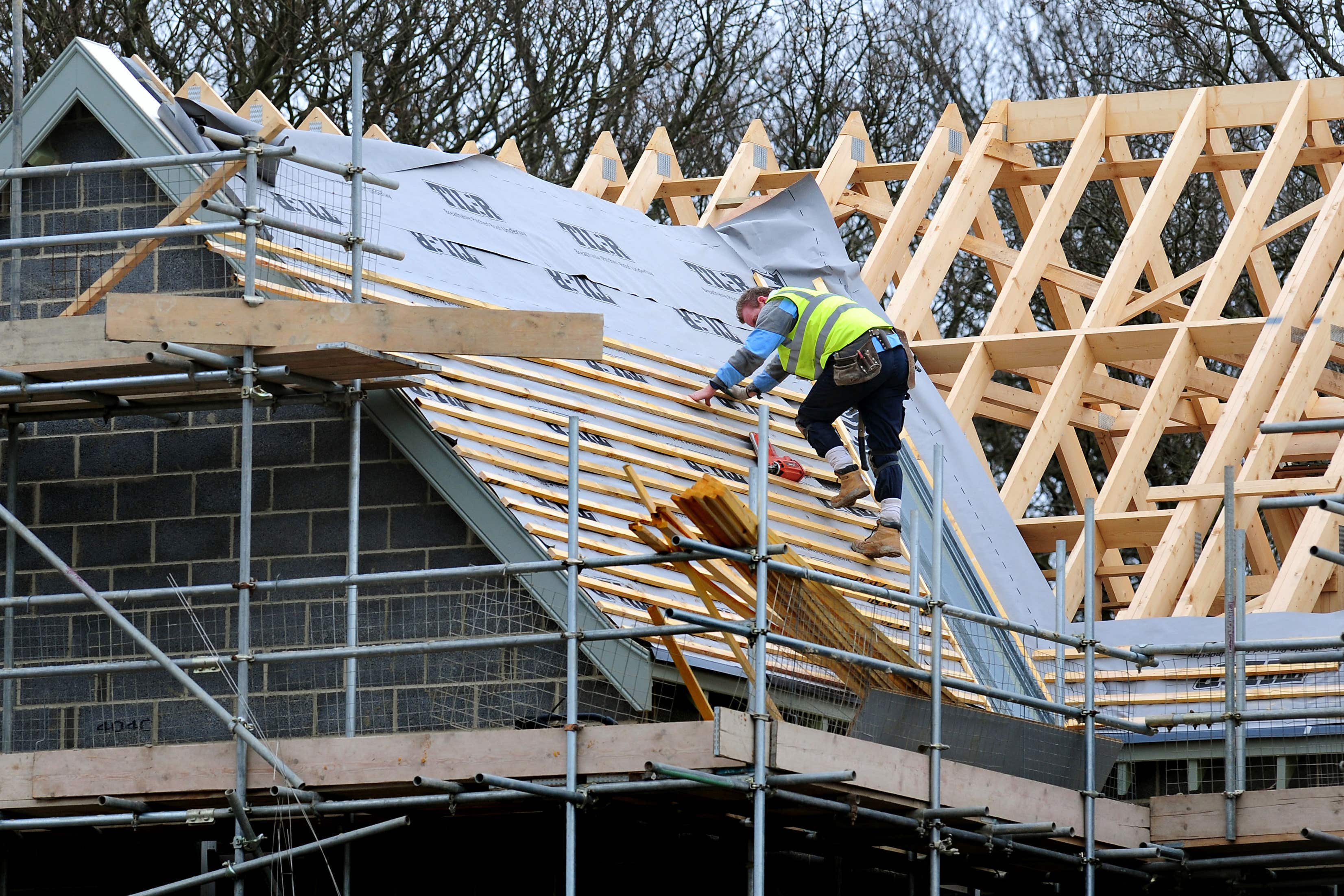Why there is room for optimism about the housing market – even if first-time buyers are being squeezed
Barratt Developments have suggested there are ‘early signs of improvement’. However, Britain suffers from a shortage of housing and it needs developers to build even if the market isn’t favourable, argues James Moore


Britain’s largest housebuilder, Barratt Developments, has suggested there are signs of fairer winds ahead for the UK housing market – after an increase in sales in January
CEO David Thomas said, in his opening comments atop the group’s half-year results, that he had seen “early signs of improvement” in the market, with the company having been dealing with some decidedly heavy weather of late.
Despite a tough operating environment, the company produced what looks like a fair set of results. Pre-tax profits showed a handy increase of 16 per cent, to £501.5m. Revenues grew by 24 per cent, the number of completions by 7 per cent.
Those numbers are particularly creditable when you consider the nasty turn the housing market took when Liz Truss was in charge of the country’s economic direction. Apparently giving mortgage rates a shot of steroids was just the thing to stop the Tory Party delivering the growth it is responsible for – thanks to a succession of stupid decisions.
The markets certainly saw reasons to be cheerful in Barratt’s update. The company’s shares have been on a steady rise since hitting a five-year low last year, when they dipped beneath even their Covid-influenced nadir.
They continued on their upward path in response to these latest numbers. However, investors remain cautious. They’re not quite ready to jump in and nor should they be. There were plenty of negatives in these numbers too.
Remarkably, Barratt managed to escape any blowback for committing what usually amounts to a corporate cardinal sin for a UK-quoted company: the dividend was cut. By 9 per cent. The developer is also cutting its dividend cover – the cushion between the amount of money it’s making and the shareholder payout.
The group’s margins, while still healthy enough, were squeezed. House prices fell month on month, but they were still up when compared to the previous year throughout the period. Trouble is, any benefit from that was offset by a sharp increase in the developer’s costs. Inflation and all that.
Cash reserves were healthy enough, at just under a billion pounds, but they too declined when compared to this time last year.
However, the pick up Barratt saw in January compared to the previous couple of months, which pleased the market, was characterised as “tentative”. It could easily evaporate.
What sustains Barratt, what sustains all such companies, is the fact that the latent demand for housing in Britain is still very strong. There isn’t sufficient supply to meet that demand, which keeps prices higher than they ought to be – and fattens the profits of developers.
While mortgage rates have largely recovered from the shock they endured from what I see as the wanton economic vandalism of Truss and the Tories, the Bank of England has been hiking base rates. And is likely to do so again with inflation still running at more than 10 per cent.
House prices could do with falling further. The post-Covid boom stretched affordability to breaking point. When combined with the cost of living crisis, higher mortgage rates are causing first-time buyers real problems.
It should be noted that the modest recovery Barratt enjoyed in January was helped along by incentives. Its lower margins, declining cash reserves and the relatively subdued activity forecast for the rest of the year – even if things stay on a more or less even keel – reflect a new, tougher reality. The salad days are over for companies like this and the going will be heavier from here on out.
The sector as a whole need to be encouraged to keep slogging through it. Any developers allegedly sitting on land – known as land banking – have long been a source of controversy. They have countered with complaints about a sclerotic planning system, blaming it for difficulties with getting developments started.
With the market dogged by uncertainty, the debate may re-emerge with fresh vigour if there are signs of developers holding back on what they have in anticipation of a more punchy recovery in prices down the line.






Join our commenting forum
Join thought-provoking conversations, follow other Independent readers and see their replies
Comments